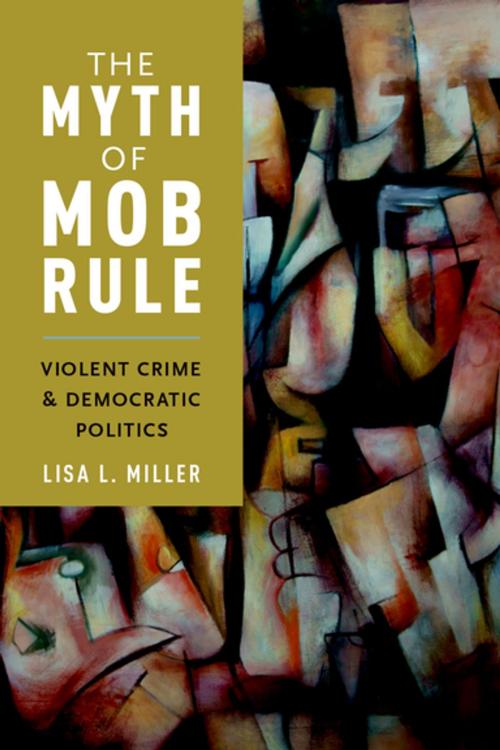The Myth of Mob Rule
Violent Crime and Democratic Politics
Nonfiction, Social & Cultural Studies, Political Science, International, Foreign Legal Systems, Politics, Practical Politics, Government, Democracy| Author: | Lisa L. Miller | ISBN: | 9780190602376 |
| Publisher: | Oxford University Press | Publication: | March 11, 2016 |
| Imprint: | Oxford University Press | Language: | English |
| Author: | Lisa L. Miller |
| ISBN: | 9780190602376 |
| Publisher: | Oxford University Press |
| Publication: | March 11, 2016 |
| Imprint: | Oxford University Press |
| Language: | English |
Scholars and lay persons alike routinely express concern about the capacity of democratic publics to respond rationally to emotionally charged issues such as crime, particularly when race and class biases are invoked. This is especially true in the United States, which has the highest imprisonment rate in the developed world, the result, many argue, of too many opportunities for elected officials to be highly responsive to public opinion. Limiting the power of democratic publics, in this view, is an essential component of modern governance precisely because of the risk that broad democratic participation can encourage impulsive, irrational and even murderous demands. These claims about panic-prone mass publics--about the dangers of 'mob rule'--are widespread and are the central focus of Lisa L. Miller's The Myth of Mob Rule. Are democratic majorities easily drawn to crime as a political issue, even when risk of violence is low? Do they support 'rational alternatives' to wholly repressive practices, or are they essentially the bellua multorum capitum, the "many-headed beast," winnowing problems of crime and violence down to inexorably harsh retributive justice? Drawing on a comparative case study of three countries--the U.S., the U.K. and the Netherlands--The Myth of Mob Rule explores when and with what consequences crime becomes a politically salient issue. Using extensive data from multiple sources, the analyses reverses many of the accepted causal claims in the literature and finds that: serious violence is an important underlying condition for sustained public and political attention to crime; the United States has high levels of both crime and punishment in part because it has failed, in racially stratified ways, to produce fundamental collective goods that insulate modern democratic citizens from risk of violence, a consequence of a democratic deficit, not a democratic surplus; and finally, countries with multi-party parliamentary systems are more responsive to mass publics than the U.S. on crime and that such responsiveness promotes protection from a range of social risks, including from excessive violence and state repression.
Scholars and lay persons alike routinely express concern about the capacity of democratic publics to respond rationally to emotionally charged issues such as crime, particularly when race and class biases are invoked. This is especially true in the United States, which has the highest imprisonment rate in the developed world, the result, many argue, of too many opportunities for elected officials to be highly responsive to public opinion. Limiting the power of democratic publics, in this view, is an essential component of modern governance precisely because of the risk that broad democratic participation can encourage impulsive, irrational and even murderous demands. These claims about panic-prone mass publics--about the dangers of 'mob rule'--are widespread and are the central focus of Lisa L. Miller's The Myth of Mob Rule. Are democratic majorities easily drawn to crime as a political issue, even when risk of violence is low? Do they support 'rational alternatives' to wholly repressive practices, or are they essentially the bellua multorum capitum, the "many-headed beast," winnowing problems of crime and violence down to inexorably harsh retributive justice? Drawing on a comparative case study of three countries--the U.S., the U.K. and the Netherlands--The Myth of Mob Rule explores when and with what consequences crime becomes a politically salient issue. Using extensive data from multiple sources, the analyses reverses many of the accepted causal claims in the literature and finds that: serious violence is an important underlying condition for sustained public and political attention to crime; the United States has high levels of both crime and punishment in part because it has failed, in racially stratified ways, to produce fundamental collective goods that insulate modern democratic citizens from risk of violence, a consequence of a democratic deficit, not a democratic surplus; and finally, countries with multi-party parliamentary systems are more responsive to mass publics than the U.S. on crime and that such responsiveness promotes protection from a range of social risks, including from excessive violence and state repression.















